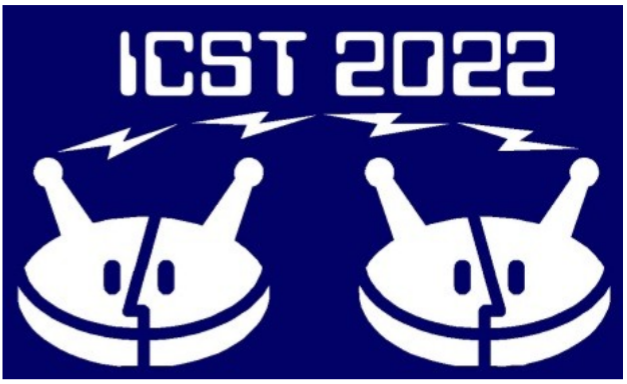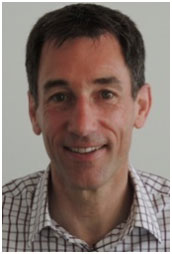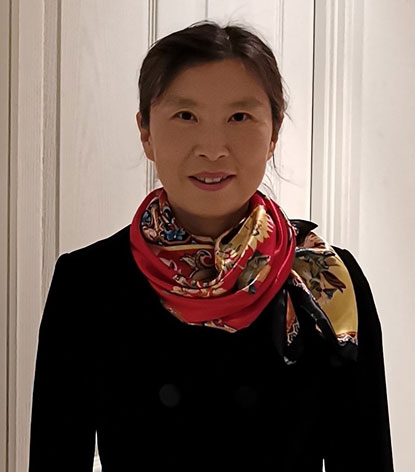
14th INTERNATIONAL CONFERENCE ON
SENSING TECHNOLOGY
January 17 to 19, 2022
Indian Institute of Technology Madras
Chennai, India
Keynote and Plenary Speakers
Title: Key-Note on "Future demands in automotive Radar"
Takeaways:
- Everybody speaks about visionand lidarsystems, but Radar is an indispensable key technology for highly automated and autonomous ADAs
- HW-SW Co-Design is essential to come to the next level
- High Performance radar versus smart radar networks - some thoughts
- Radar perception can benefit performance, if it is not treated like a lidar or camera
- Massive AI is entering the Radar-Perception arena.
Abstract:
Over decades automotive driver assistance systems have developed from simple park assistance and ACC to highly complex L3 functions. Among other issues, that has been driven by the dramatic development of radar sensor technology and radar based perception. Radar can see, where other sensors can´t. Due to their performance to be packaged nearly invisible, modern cars can still appear as design artwork icons, like the present EQ-S. With the development towards higher automatisation the total perception system has to provide much more comprehensive and precise information to the path planning and behavior stages in order to allow proper operation. Based on our experience with the “Bertha Drive” as quasi autonomous vehicle, we got inside what is needed in the future. One outcome was, the sensor technology in cooperation with perception algo-concepts have to develop along other lines as compared to simple L2 systems. The key note will line out from a radar point of view what has been achieved so far and what will be needed in the future.
Over decades automotive driver assistance systems have developed from simple park assistance and ACC to highly complex L3 functions. Among other issues, that has been driven by the dramatic development of radar sensor technology and radar based perception. Radar can see, where other sensors can´t. Due to their performance to be packaged nearly invisible, modern cars can still appear as design artwork icons, like the present EQ-S. With the development towards higher automatisation the total perception system has to provide much more comprehensive and precise information to the path planning and behavior stages in order to allow proper operation. Based on our experience with the “Bertha Drive” as quasi autonomous vehicle, we got inside what is needed in the future. One outcome was, the sensor technology in cooperation with perception algo-concepts have to develop along other lines as compared to simple L2 systems. The key note will line out from a radar point of view what has been achieved so far and what will be needed in the future.

Juergen Dickmann
Speaker Biography:
Dr.-Ing. JuergenDickmann is head of Radar sensors and radar based perception at highly automated driving, DAIMLER AG. In this role he is responsible for all radar projects for the 6th generation of ADAS systems at Mercedes-Benz AG and radar based perception in the cooperation with Nvidia. In his last position, he was in charge of radarand radar perception in the autonomous driving cooperation between Mercedes-Benz AG and Robert Bosch. Before that, he managed the technology transfer process from pre-development into series of all perception sensing (Radar, Laser, Video) and localization technologies for S-Class model BR222. Among others, he held manager positions at DAIMER in Laser-Scanner, Sensor-Fusion and Situation Analysis. He conducted radar research and pre-developments for radar based Pre-Crash and driver assistant systems for all platforms (Passenger cars, Busses, Van, Truck) inside DAIMLER AG. The research achievements of his group can be found in: https://www.researchgate.net/profile/Juergen_Dickmann.
He received his Diploma degree in electrical engineering from University Duisburg, Germany, in 1984. In 1991 he achieved the Dr.-Ing. degree at RheinischWestfaelischeTechnischeHochschule Aachen (RWTH), Germany. In 1986 he started his career at AEG Research Center, where he did research on III/V-semiconductor processing techniques, mm-Wave device and MMIC-design (up to 120GHz) and fabrication.
Dr.-Ing. JuergenDickmann is head of Radar sensors and radar based perception at highly automated driving, DAIMLER AG. In this role he is responsible for all radar projects for the 6th generation of ADAS systems at Mercedes-Benz AG and radar based perception in the cooperation with Nvidia. In his last position, he was in charge of radarand radar perception in the autonomous driving cooperation between Mercedes-Benz AG and Robert Bosch. Before that, he managed the technology transfer process from pre-development into series of all perception sensing (Radar, Laser, Video) and localization technologies for S-Class model BR222. Among others, he held manager positions at DAIMER in Laser-Scanner, Sensor-Fusion and Situation Analysis. He conducted radar research and pre-developments for radar based Pre-Crash and driver assistant systems for all platforms (Passenger cars, Busses, Van, Truck) inside DAIMLER AG. The research achievements of his group can be found in: https://www.researchgate.net/profile/Juergen_Dickmann.
He received his Diploma degree in electrical engineering from University Duisburg, Germany, in 1984. In 1991 he achieved the Dr.-Ing. degree at RheinischWestfaelischeTechnischeHochschule Aachen (RWTH), Germany. In 1986 he started his career at AEG Research Center, where he did research on III/V-semiconductor processing techniques, mm-Wave device and MMIC-design (up to 120GHz) and fabrication.
Title of talk: Wide industrial acceptance of FBG sensors: challenges and opportunities
Speaker's name:
Professor Tong Sun OBE FREng, City, University of London, UK
Abstract:
Optical fibre sensors have gained an increasing interest from the industry due to their attractive features, such as immunity to EM interference, small size, light weight and multiplexing sensing capability, unrivalled by their electrical counterparts. However their wide acceptance requires further technical and commercial obstacles to be overcome. In this presentation the speaker is going to share with the audience her research journey, jointly with her industrial partners, and highlight the challenges and opportunities that arise from the design, development of FBG sensors and their field deployment.
Optical fibre sensors have gained an increasing interest from the industry due to their attractive features, such as immunity to EM interference, small size, light weight and multiplexing sensing capability, unrivalled by their electrical counterparts. However their wide acceptance requires further technical and commercial obstacles to be overcome. In this presentation the speaker is going to share with the audience her research journey, jointly with her industrial partners, and highlight the challenges and opportunities that arise from the design, development of FBG sensors and their field deployment.

Tong Sun OBE FREng
Speaker Biography:
Tong Sun was awarded BEng, MEng and DEng in Precision Instrumentation from Harbin Institute of Technology, China in 1990, 1993 and 1998 respectively and PhD in Applied Physics at City University London in 1999.
Professor Sun leads research at City, University of London in developing and applying optical fibre sensors and instrumentation to address topical industrial problems. She has authored and co-authored more than 300 scientific and technical papers and an inventor of 10 patent applications. She was a recipient of Silver Medal 2016 awarded by the Royal Academy of Engineering in the UK, Oxburgh medal 2016 and Callendar Medal 2010 awarded by the Institute of Measurement and Control in the UK. She was the winner of the Times Higher Education Awards 2019 in the category of 'Outstanding Research Supervisor of the Year'.
Professor Sun was recognised in 2018 Queen's Birthday Honours List by the award of an OBE for services to engineering. She also holds a Faiveley Brecknell Willis/Royal Academy Research Chair. In 2020 she was elected Fellow of the Royal Academy of Engineering in the UK.
Tong Sun was awarded BEng, MEng and DEng in Precision Instrumentation from Harbin Institute of Technology, China in 1990, 1993 and 1998 respectively and PhD in Applied Physics at City University London in 1999.
Professor Sun leads research at City, University of London in developing and applying optical fibre sensors and instrumentation to address topical industrial problems. She has authored and co-authored more than 300 scientific and technical papers and an inventor of 10 patent applications. She was a recipient of Silver Medal 2016 awarded by the Royal Academy of Engineering in the UK, Oxburgh medal 2016 and Callendar Medal 2010 awarded by the Institute of Measurement and Control in the UK. She was the winner of the Times Higher Education Awards 2019 in the category of 'Outstanding Research Supervisor of the Year'.
Professor Sun was recognised in 2018 Queen's Birthday Honours List by the award of an OBE for services to engineering. She also holds a Faiveley Brecknell Willis/Royal Academy Research Chair. In 2020 she was elected Fellow of the Royal Academy of Engineering in the UK.